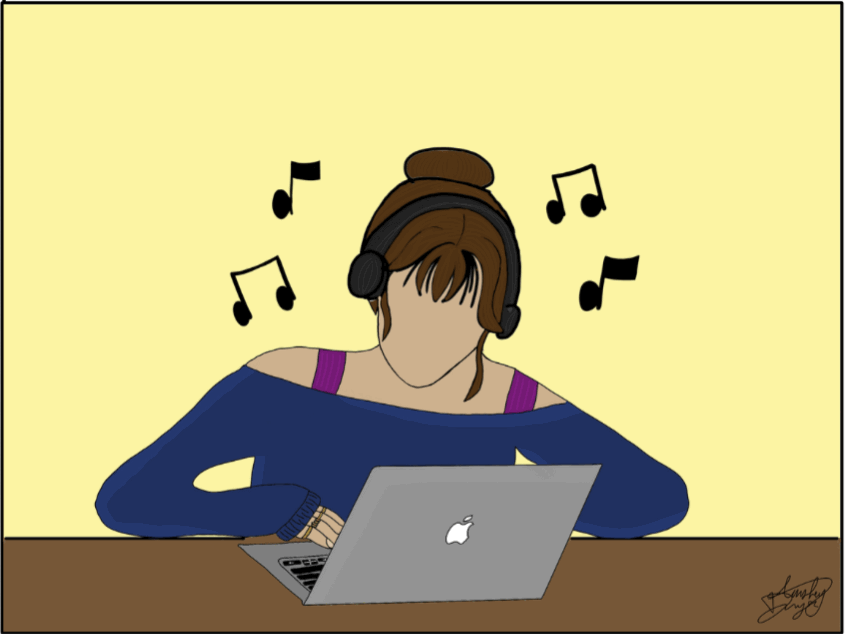My mother walks into the room as I bob my head to the beat of instrumental music and mouth the formulas in my physics textbook.
“Prathi! No listening to music while studying! It makes you distracted.”
But does it really?
For some, music can be an essential tool for effective learning.
Listening to music engages specific areas of the brain responsible for attention and prediction, which can ultimately help us absorb and retain information. For students prone to distractions, such as social media, music can act as a barrier, helping to stay focused on the task at hand. However, like many study habits, music’s effectiveness depends on how you use it.
In the past, I’ve often tried to study with my favorite artist’s top hits playing in the background, but this only distracted me. The allure of singing along to the lyrics or pondering their meaning beat my motivation to study every time.
Realizing this, I began listening to instrumental music while studying instead. Upbeat, non-lyrical music allows me to stay driven without being distracted by words.
Volume also matters. I found that the blaring volume I set my music to during my free time is too much while studying. While there is no specific volume as far as I can tell, I set my music at around 20-25% for an ideal background sound. This way, I can still reap the motivational benefits of music without my head pounding.
Music is also a mood booster, which is particularly helpful during longer or more stressful study sessions. Upbeat music or calming instrumental tracks reduces anxiety and lifts your spirits. Music can trigger the release of dopamine, the “feel-good” neurotransmitter that motivates you to keep going.
This mood improvement helps studying feel less like a chore. Even if I do not particularly like the subject, I am more likely to keep going if I have some music making me feel better.
But the most useful way I use music is a powerful memorization tool. If you have a catchy tune stuck in your head, use it to your academic advantage. Making information into a melody makes it easier to recall. Songs like “The Alphabet Song” and “The Periodic Table Song” rely on repetitive tunes that help students remember key facts.
Since I was very young, I’ve been told that listening to music hurts my ability to learn. But as I’ve discovered my preferred study methods through trial and error, I’ve even managed to convince my mom that having headphones in while learning is not a mistake.
Music keeps me focused and motivated, even giving me a new way to memorize. With the right playlist, volume and intention, music is one of my greatest studying assets.
Follow @CHSCampusNews on X.











